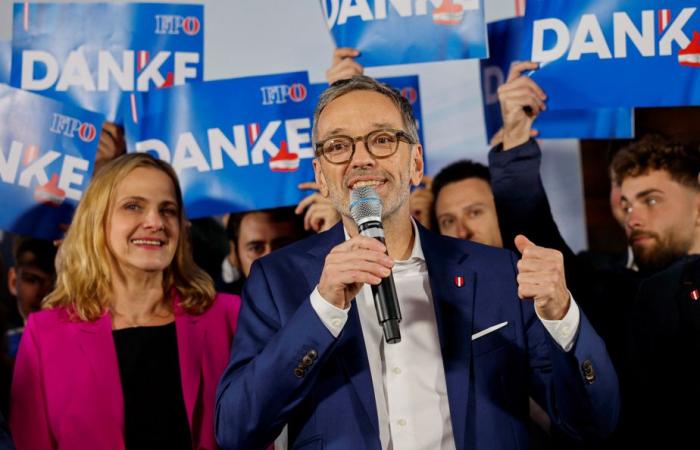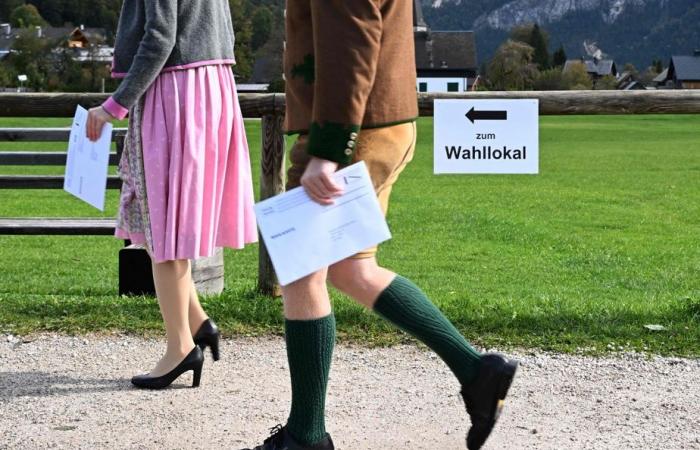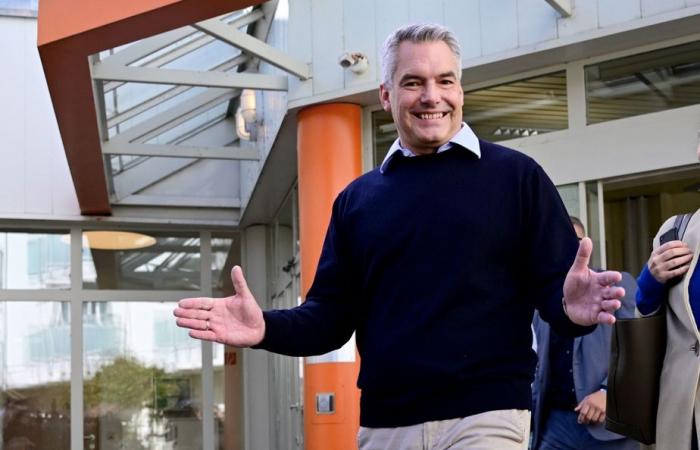Five years after experiencing the debacle, the Austrian far right achieved historic success in the legislative elections on Sunday, but without guarantee of being able to govern.
Posted at 11:16 a.m.
Updated at 4:06 p.m.
Herbert Kickl’s Freedom Party (FPÖ) obtained 29.1% of the vote, a jump of 13 points compared to the 2019 election, according to projections based on the counting of more than half of the ballots.
The leader of the Austrian far right welcomed Sunday evening “the opening of a door to a new era”.
“Enjoy this result. It’s a piece of history that we wrote together today,” he told his supporters gathered in Vienna.
PHOTO LISA LEUTNER, REUTERS
The leader of the Austrian far right welcomed Sunday evening “the opening of a door to a new era”.
What we have accomplished is beyond my wildest dreams.
Herbert Kickl, leader of the Freedom Party (FPÖ)
In a context of the rise of radical parties in Europe, this formation founded by former Nazis is doing even better than what the polls predicted, inflicting a setback on the eco-conservative government.
But Mr. Kickl, so extreme that no party wants to build a coalition with him, is far from assured of accessing the chancellery or even the government.
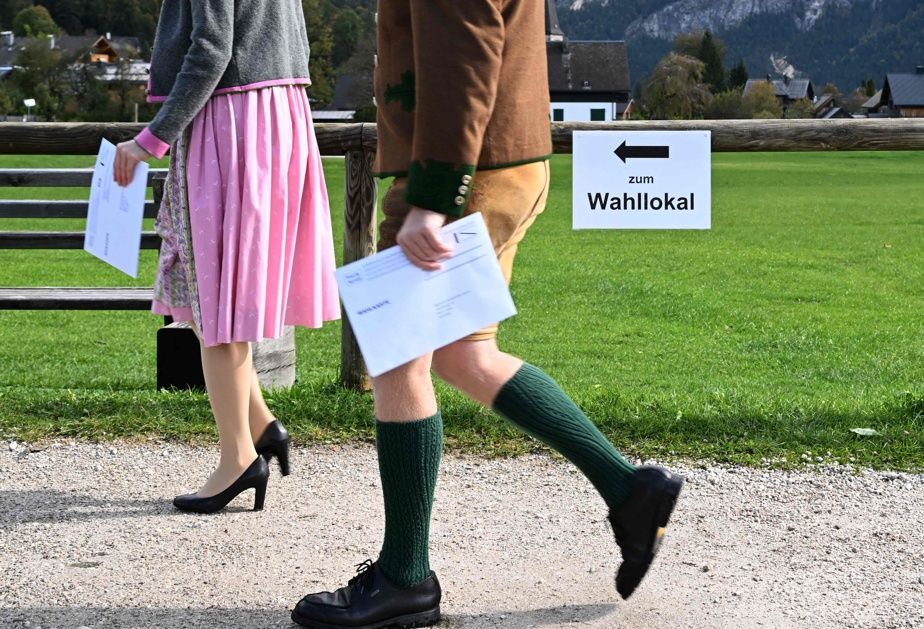
PHOTO AGENCE FRANCE-PRESSE
Voters in traditional clothing go to a polling station in Altaussee, Styria, Austria, September 29, 2024.
An attitude that he regretted on Sunday evening, reacting to the results. Faced with the “very clear” message sent at the ballot boxes, “we are reaching out to all parties,” he said on the public channel ORF, regretting that his voters were being treated as “second-class citizens.”
Opposite, Chancellor Karl Nehammer, leader of the conservatives (ÖVP), noted the “disappointment” of his troops in the face of the defeat (26.3%). “We have not managed to catch up” with the far right, he regretted in front of a somber audience.
“No government before Christmas”
At the FPÖ headquarters, between pints of beer and traditional Austrian costumes, the atmosphere is much more joyful.
Erik Berglund, a 35-year-old waiter, said he was “delighted” with a result that exceeded all his expectations. “It’s a huge success because we have the best party leader”, comments this activist for AFP, who now expects “exciting” and long negotiations: “we will certainly not have a government before Christmas.”
“It is undoubtedly an earthquake, a shock wave for the entire political class,” commented Viennese political scientist Thomas Hofer. Because if the far right had already tasted power in the Alpine country, it has never finished at the top of a national election.
Crushed in 2019 by a resounding corruption scandal known as “Ibizagate”, the party has spectacularly recovered under the leadership of Herbert Kickl, who was hardly predestined to be in the light and who thrived on the social and economic fears crossing the continent.
Close to certain small groups criticized, the one who wants, in the native country of Adolf Hitler, to be called like him “Volkskanzler” (people’s chancellor), has adopted the term “remigration”, with the project of forfeiting their nationality and to expel Austrians of foreign origin.
This former Minister of the Interior, aged 55, also knew how to attract anti-vaxxers with his conspiratorial remarks against anti-COVID-19 measures, the most deprived affected by inflation and all those sensitive to Austrian neutrality in condemning the sanctions against Russia.
From green to blue or red?
Despite a drop of more than ten points compared to 2019, the ÖVP, in power since 1987, “has a good chance of retaining the chancellery”, estimates analyst Julia Partheymüller.
But with which partners? The scenarios have to be written.
If Mr. Nehammer repeats that he does not want to ally with Herbert Kickl, he does not reject a possible coalition with the “blues” of the FPÖ, as in 2000 and 2017.
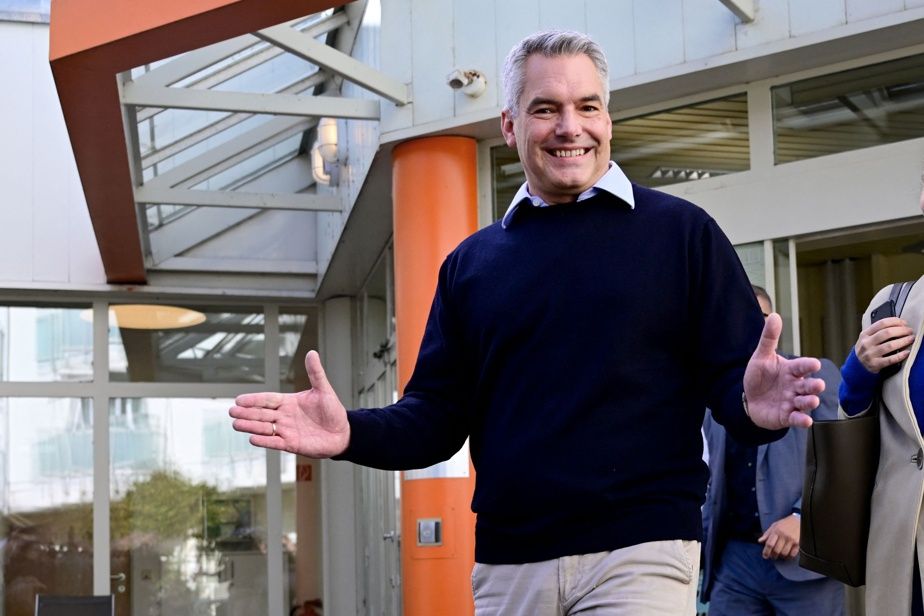
PHOTO ROLAND SCHLAGER, AGENCE FRANCE-PRESSE
Austrian Chancellor Karl Nehammer
Among the 6.3 million voters, many are counting on this scenario, like Bernd Lunglmayr, a 48-year-old health consultant. “Any other outcome would surprise me a lot,” he said, saying he was “worried”. “In Austria, political memory is short” and “the trend is towards populist parties in the Western world, in this period of crisis”.
But according to experts, the conservatives will not agree to be the minority partner and could prefer to join forces with the social democratic “reds” (21%) and the liberals of Neos (9%) – a three-way format would be a first in Austria.
With the Greens, in sharp decline (8.3%), there are many areas of contention and the divorce seems complete.


